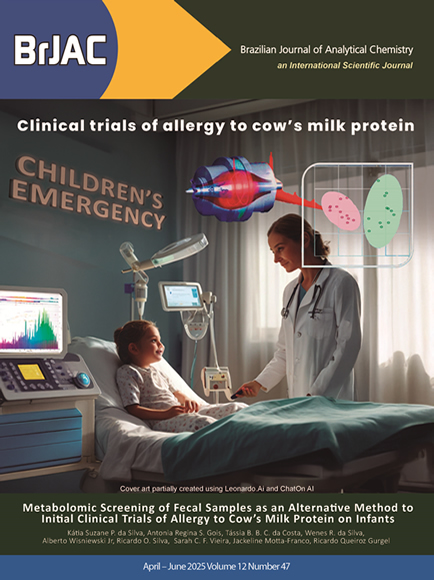
Volume: 12
Issue: 47
Contents:
This issue contains an Editorial by Prof. Jez Willian B. Braga (UnB), an Interview with Prof. Jiří Dědina (Charles University in Prague), a Point of View by Dr. Márcio Rebouças (Braskem S.A.), and a Letter by Prof. Alessandra Sussulini (IQ-Unicamp). Four articles offering contributions in the medical, biological and environmental fields, and a technical note on forensic science. In addition, readers will find a feature on the 9th ENQFor, sponsor reports & releases, book notices, and a calendar of events.




























